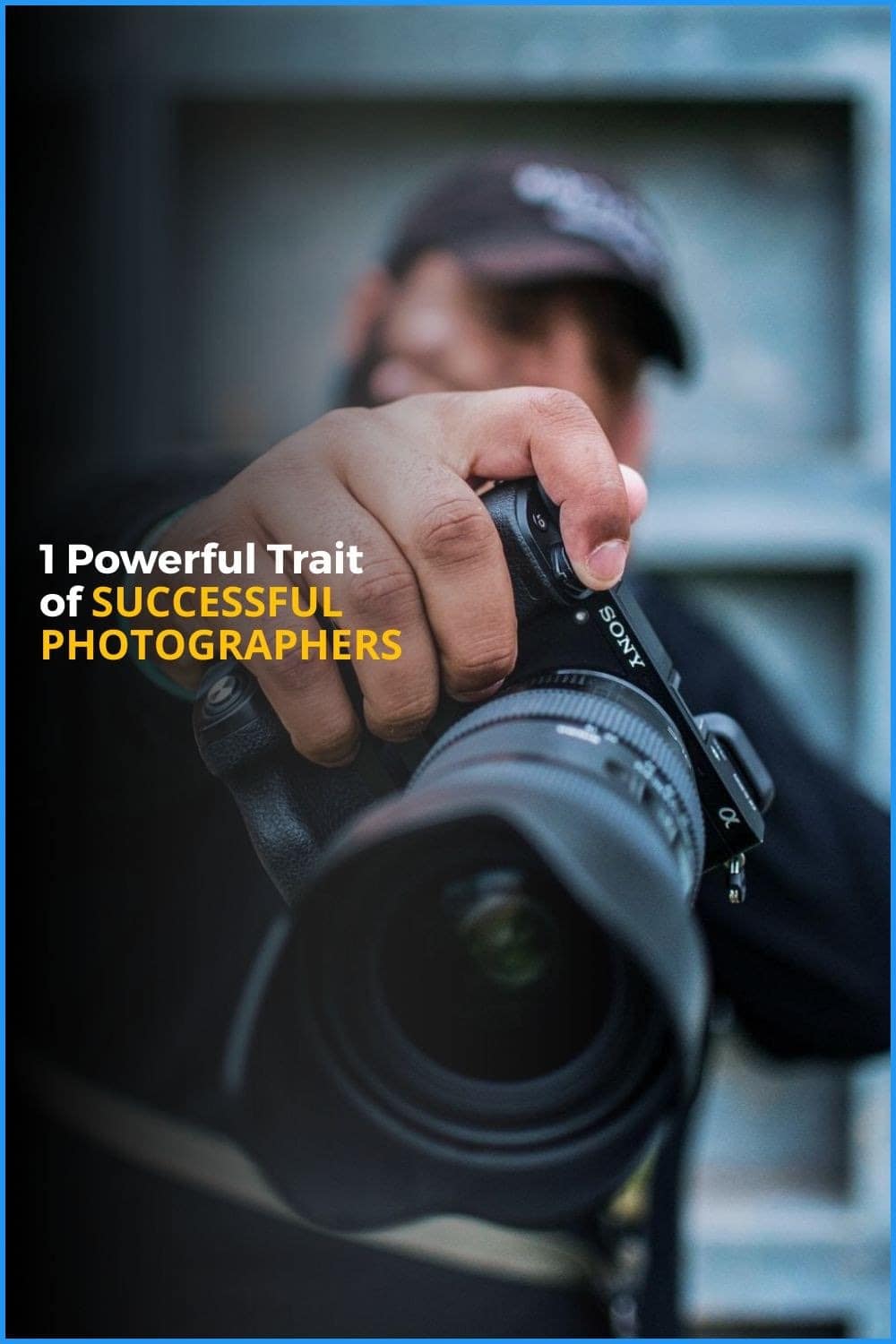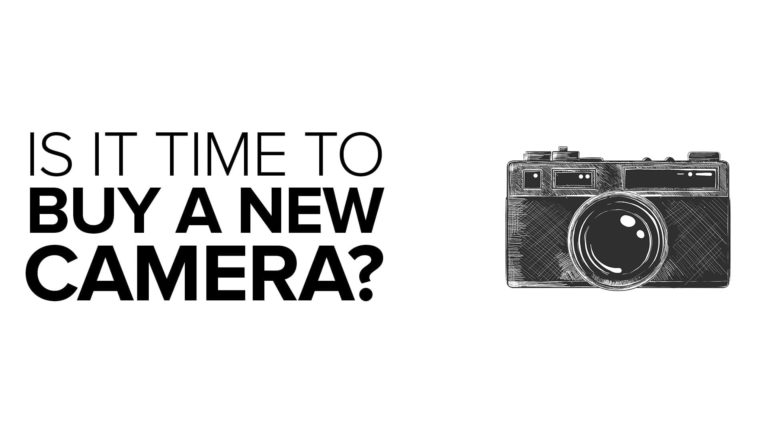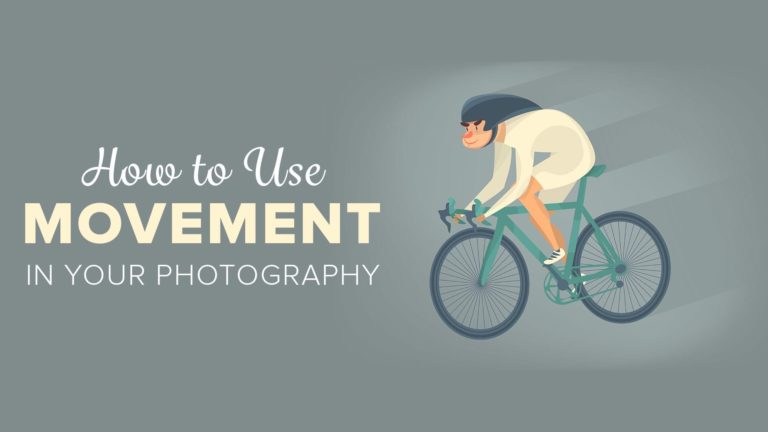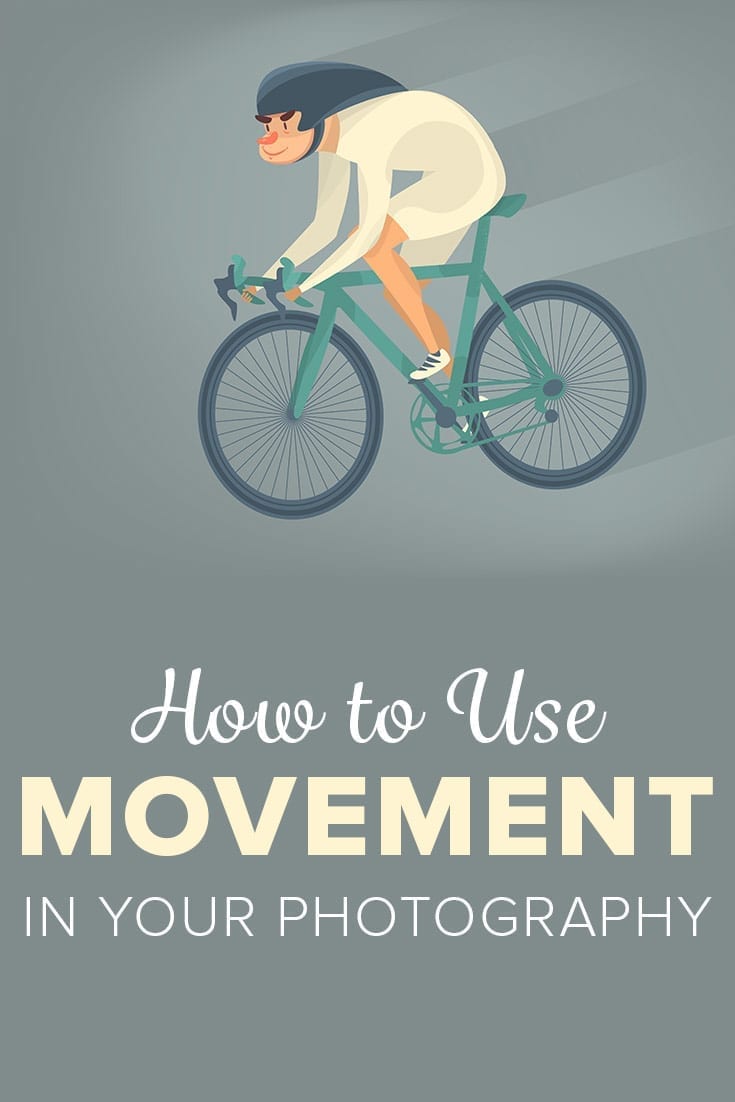Affiliate Disclosure: We earn a commission if you purchase through one of our links at no additional cost to you.
What’s the most important and powerful trait of successful photographers?
They take charge of their own interests and make progress. A successful photographer creates success by making progress, despite others who may want to hold them back.
You need a bit of self confidence and attitude to succeed in most things. That’s why we’re going to talk about how you can get the progress you need.
How to Become a Successful Photographer
If you think I’m going to discuss some special photography technique or method of lighting, you’re wrong. We’re also not going to talk about your creative vision or your abilities as a visual storyteller.
Those are all important, but they don’t mean a thing if you can’t get this one concept in your mind.
You’re a big deal.
Accept it. Embrace it. Live it.
Your mental attitude about being a success is a critical factor in becoming a successful photographer. It doesn’t even matter what criteria you use to define “success.”
Don’t fear success, or the idea of being successful. Don’t think that you’re not worthy, and definitely DO NOT let anyone else make you think that you’re not worthy.
Likewise, don’t give in to complacency. If you don’t have the drive to be successful, then you’ll never make progress.
1: Declare what it means for you to be a successful photographer
We have different dreams and desires. The only ones that matter are yours. You can admire other photographers (I do), but you don’t have to copy them.
In order to be your version of a successful photographer, figure out what that means to you.
- Make your living as a wedding photographer
- Get published on a magazine cover?
- Travel to beautiful places
- Photograph exotic creatures
- Take photos of exciting events and sports
- Make everyone jealous of your concert photos
There are plenty of opportunities to be a big deal, so declare what you are. Not what you’re going to be, someday. Declare what it means for you to be a successful photographer.
2: Write down three habits, beliefs or thoughts that keep you in the small time
Limiting beliefs are your lack of confidence providing you with excuses; reasons why you shouldn’t aim higher.
Deal with them head-on. Write down the things that bother you or concern you. Lay out why you think you shouldn’t be a successful photographer. Listen to yourself.
Then set it aside for a few days or a week.
When you come back, tell me if those beliefs seem rather ridiculous to you. Insulting, even.
Then start addressing each one of those habits, beliefs or thoughts that keep you from reaching your potential. Is any single one of them valid, or are they simply issues to overcome?
My money is on the idea that you can overcome each of those limiting beliefs. Some may be tougher than others, but here’s something to remember.
Other people had to overcome their limited beliefs, too. Nobody comes out of the womb with a camera in hand.
3: Write down who you need to become in order to be a successful photographer
As I said, people aren’t born into being a successful photographer. They had to learn. They had to become something they weren’t.
You can do the same thing, so decide what you need.
- Do you need more practice as a photographer?
- Should you collaborate with someone who has resources you lack?
- Can you get over your fear and do something outside of your comfort zone?
I’m a big believer in planning, but that doesn’t work for everyone. My wife, Lee, is the kind of person who prefers to jump out of the airplane and assemble a parachute on the way down.
Find what works for you, but get started. Done is better than perfect.
Here’s the Most Powerful Trait of Successful Photographers
Progress is the trait of successful photographers. They don’t sit on their laurels, content with what they’ve already done.
Successful photographers want to advance their skills and vision. They want to make progress and become better photographers.
That has nothing to do with their creativity or technical skill. It’s all about the drive inside of them.
Here are a few concepts to keep in mind so you can develop trait of successful photographers, too.
Don’t Play the Small Game
No matter the field of interest, there are always people giving out bad advice. They mean well, no doubt. It’s just that they don’t know how to succeed, so they keep regurgitating things that they’ve heard other people talk about.
The problem is that they never stop to consider if the person offering the advice ever had any success using those ideas.
One thing that comes to mind are timed challenges for photographers.
- 7 day challenge to take a photo every day
- One month challenge to take a photo every day
- 365 photo projects
These things don’t advance your photography. You just end up checking a box. If anything, photography becomes more of a nag than a joy. You get to the end of the day and realize you haven’t taken a photo yet.
So then you look around, snap a shot and you’re no better than you were at the start.
Quality, not quantity, is a better yardstick to measure your progress.
Measure what matters to help you become a successful photographer.
Don’t Worry What Others Think
Back in 2000, I decided that I wanted to get into better shape. I went to a local gym, hired a personal trainer and started off on my journey.
Within 90 days, I made remarkable progress. I lost weight, went down a few pant sizes and had good muscle definition. Now that was measurable progress.
Were the people in my life happy for me?
Most were shocked. Some actually told me I lost so much weight that I looked unhealthy. Others told me that now they didn’t feel bad asking me to join them at Cheesecake Factory for dessert.
In short, my sudden success seemed like it was a threat to their way of life. Without intentionally planning it, they were trying to hold me back. They wanted to pull me back down.
That’s because my success reminded them of their own complacency.
I did something, they didn’t.
I also got some attention from the other side of the fence. Suddenly, I became an acceptable date for women who never paid attention to me before.
If you don’t let the old group hold you back, there’s a new group willing to accept you as part of their clique.
Where do you want to be and who will encourage you to get there?
Complacency Kills More than Competition Does
Complacency is the worst enemy. That’s what happens when you quit before you even try to make progress. It’s the saddest kind of existence. You’ll never know what could be if you never even try.
Here’s some advice that I recently shared with my daughter.
Her employer offered her a promotion. She’s not sure that she wants to accept. When I asked her why, she gave me a lot of limiting beliefs.
Why her? She’s young and would have to manage people a few years older. Would they accept her or listen to her? Is she ready for this responsibility?
I encouraged her to accept the promotion and this is what I told her.
If you don’t climb the ladder when you get an offer, they will take the ladder away.
Tweet
The same thing happened to my mother years ago. She declined a promotion, but the office idiot went for it. He couldn’t do the job well, so my mother ended up doing the work for him. The problem is that she didn’t get the pay and benefits that went with the position (until later).
Many of us have worked for idiots in the past. They don’t know that they’re unqualified, so they’ll offer to do anything if it pays better.
Do you want to see an idiot advance because you were complacent?
Please don’t do that. Live up to your potential to be a successful photographer.
Time Stamps
Generally speaking, I think photographers want to get better at their photography. And there's a lot of advice that goes out there. I'll be honest with you. I think a lot of that advice is bad advice. I try to give good advice where I can. And today I'm going to tell you about the one powerful trait of successful photographers. And that's what we're going to talk about on
I Like Your Picture. I'm William Beem. Welcome to I Like Your Picture, the show that helps you improve your photography with visual storytelling. What is visual storytelling? It's a method of approaching your photography with a knowledge of who you're trying to serve with your photos and what emotion you want to make them feel. We encourage you to concentrate on your subject, light and background to create a photo
your audience loves. I'm glad you found us. Hi, my name is William Beem. My name is Lee Beem and Lee Beem is misbehaving today. But if you've listened to the show before, you know, that's true. Thank you so much for being here. We really appreciate it. There are three things we want you to be able to take away from this.
And the first one is you're kind of a big deal. Whether you admit that to yourself or not is a different matter, but you've got the potential to be a really big deal. And I'm going to tell you that, number two, fear is the first enemy. The reason that some people don't live up to their potential is because they're afraid of anything. Of the consequences, of what other people think.
And three, the other problem is complacency is the worst enemy. If you just don't care, if you're complacent and you're never gonna make progress in anything in life. I think. if you're complacent about it. Lee you've had that experience before, because you've been in a position where you're training people for different things. And what do you see more of, fear or complacency?
Initially, usually it's fear. Once people do fear starts at Lee, it doesn't necessarily go away, but it starts dissipating somewhat. As people do things. It's always more frightening when you don't know anything about whatever it is that you're gonna try. Once you've done it a few times, the fear still there, but it's, it starts to get less and less.
But after that, it's almost like there's a fork in the road. And some people get straight onto this mind over matter. Let's do this, let's do it. And when by the time they look around and go back, they turn around and look back. They realize that whatever it is that was holding them back is irrelevant now. I think the biggest problem is those who kind of look at it and it seems overwhelming and they never really moved past that.
Or they start questioning whether they really care enough to make the sacrifices or to take the steps. That's where the complacency comes in. And basically complacency means I accept the current, you know, things as they are right now. I don't feel the desire, the need to do anything about it. Yeah. If you accept the status quo, you will remain in the status quo.
We started off this year, I mean, this podcast is coming out in April, 2021. So earlier this year, we talked about having a little bit of an attitude. This is really another part of that. Success starts with an attitude. I want to give you a couple of examples of that, that I've experienced in my life. About 10 years ago, I got laid off.
I was working a corporate job with Lockheed Martin. Things happened and yes, I'm still bitter about it, but I lost my job. My cousin, Cathy, is wonderful person. She reached out to me. She'd also been in a position where she was looking for some work and she invited me to come with her to this group meetup for people, you know,
looking for employment. So I got dressed up. I put on my suit and tie. I went out there and I'm sitting with her and I gotta tell you I wasn't impressed. And I remember Cathy looked at me and asked what's wrong. And I said, what do you mean? She says, well, you're looking around the room. Like you're better than everybody.
I pause for a moment. I said, I am. And this is one of the first lessons I want to help you with. If you're the smartest person in the room, if you're the best person in the room, whatever it is, you're in the wrong room. I looked around there and I can feel sympathy for people who are out of a job,
but I looked at him and thought these people are going to be absolutely no help to me. They have no better idea of how to find a job than I do. Networking with people who don't have any better resources, skills, or ideas than you do is not going to move you forward. I can give actually a flip side example to what you were in.
It was different circumstances, but a similar situation. I know, I don't remember exactly what happened, but somehow I ended up where I think the place I was working for, the they'd gone out of business or closed. And I was in a temporary contract that I'd taken. And it just so happened that early, like I just started there and there was this compulsory training seminar that everybody had to go in.
There was only one thing that I knew there. I did not fit with these people. It doesn't mean that I was better. They were better at whatever it was. I think I had a lot more experience than most of the people in the room. It wasn't about the company. It was those people who happen to be in my group, but the person who was leading the seminar,
I think it was on the second day, there was a lunch break and he looked at me. I was kind of packing up some papers and putting things away. And he, he said to me, you don't fit here. He said, you don't fit in. He said, I think you're, I don't remember his exact words. But he said,
I think you're beyond the level of the people in this room. Here's how it was different to William's situation. At that time, my confidence had taken a knock. I was starting to, you know, you know when you get laid off, it doesn't matter if it's not your doing. You start questioning your abilities and your self-worth. I think the mistake that the guy or his oversight,
the instructor who made this comment to me, he was correct. I didn't fit in the room. He was probably correct in his observation, that was that I had more experience than I had more knowledge in the area than other people did. What he really overlooked was the key issue. And that's usually the most important issue is often hidden in the details.
And that is, I was not in a place where I had the confidence to feel ready or worthy or whatever you want to put it of moving forward or being elevated. So in a way, even though I knew that I knew more, I felt like I was lesser than the other people who had been there longer than me. The whole idea that we're talking about here is progression and making an honest assessment of whether you're progressing or not.
And whether the people around you are helping your progress or not. So I'm going to give you two more examples. The first one is let's say about weight loss. I am a large man. I have had my ups and downs with weight. One of the things I know is the people who can tell me the most about how to lose weight are the people who really need to lose weight.
Honestly, they're not the right people. They are well-intended, they have the same goal, but they're not getting there. There's something wrong. You know what happened when I finally lost weight and got in shape, it was in 2000. When I looked in the mirror and I was disgusted with myself, I went down to a local gym near where I worked.
I signed up, they had a challenge going on. And 90 days later, I was in pretty good shape. Matter of fact, people around me were telling me that I looked unhealthy because they were used to me being the way I was. But the fact is I dropped down a couple of pants sizes. I was in much better shape. I had muscle and definition and that frightened some people because I was leaving them behind.
Yeah. People are threatened when somebody else moves forward. Not because you're moving forward, but they feel like it's putting a spotlight on them for where they are. Yeah. I made progress. And some people didn't and that upset them. You know, some of those people will move with you. Some of those people will be happy for you. Some of them,
you have to let go, because if they're going to stay in the same place, they'll hold you back. They'll find fault or flaw with whatever it is that you're doing. That's causing you to make progress. So you've got to make a realistic assessment, I guess. Are you moving in the direction that you want to and are the people around you supporting you or holding you back?
Another example is Photoshop World. I got to tell you, this has been one of the most positive experiences of my life. I started going to Photoshop World. I think in 2009, maybe 2010, I went about four or five times. I had a great time. I met wonderful people. I learned a lot. And then on my last time around,
I didn't have any bad experiences, but when Photoshop World came up again, I didn't go. And that's not because there was anything wrong with Photoshop World. It's because there wasn't anything new for me to progress at Photoshop World. And maybe it's changed. You know, that's been, you know, several years ago, but my level of progression got to the point where I said,
I don't need to go to Photoshop World. Yeah. There was no benefit outside of social. There's nothing wrong with that. You're going to find some places where the group exists, maybe to help beginners, maybe to help intermediate, maybe to help advance. Whatever the case is. And then people kind of cycle through that and they move on. If you make progression and you learn,
that's great. And often these Groups and, and you know, courses or whatever it is that you're going through are designed like that. They have decided that I'm working with beginners. What they really want to see. It doesn't make it a bad review and they're not offended by that. They want to see that you grew enough to progress and move on and move out.
It's like having kids. And that shows that Photoshop World was successful. They taught me things. I learned things there. I had a good time and I progressed on to things that they're no longer teaching. So I don't see that as a failure with Photoshop World. I see that as a success that I went in, I had a good time. I learned things.
And now I'm looking for greater challenges, greater experiences than, than what they're teaching. Nothing wrong with me, nothing wrong with them. But that is the whole idea of what we're talking about is progression. And that's really the trait of successful photographers. You need to progress. And if there are people that are holding you back, you need to cut them loose.
The other thing I think is when you start learning something at beginner level, no matter what, what you're doing, everything is very general. It almost covers every aspect that it's, it's kind of, you know, nothing gets too in depth. The more advanced you get and the more you learn, the more kind of specific things start to get.
I think, you know, once you progress to a certain level, you know what genre you're into, or maybe there was a few of them, but you're certainly not doing every kind of photography or every style of photography. You're starting to find yourself within that. And that to me is a sign of growth. Not a case of, I need to pick something because everybody has one.
It's when you start gravitating towards something, you practice, you focus on it and you become good at it. I think that's the other thing. You're going to find that the more you progress with something, the more stuff is irrelevant in these basic groups. So we talked about the idea of success starts with an attitude. The next step that you want to take is to accept and believe that you're a big deal.
And that is really about your self-confidence. And there's three steps that we want to talk about as far as, or what it really means to be a big deal. And step one is what does it mean for you to say that you're a big deal in this world? In other words, as a photographer. You've got a goal that you want to get to.
If you don't, this is the time to think about it. What is it going to take for you to be a big deal as a photographer? All right. The next step I want you to do is to write down three things, habits, beliefs, thoughts, anything that keeps you small. In other words, what are you doing that's holding you back from becoming a big deal?
And then the last step, write down who you need to be in order to reach your goals. So think about some of the people that you admire and respect. Why do you admire them? Why do you respect them? Do you want to be like them? Or do they give you ideas of who you want to be? Put that stuff down and start thinking about yourself as a big deal.
In other words, don't think, Oh, I'm a small time photographer. I'm just in this tiny little town. No, get the attitude, get the belief that you're a big deal, and then start taking the steps to eliminate what's holding you back and do the things that help you reach your goals. One of the things that I think hold people back is don't play the small game.
In other words, don't go off and take pictures for the sake of taking pictures. One of the things I hear given as advice quite a lot is like a one week challenge, a month challenge, or a 365 day challenge. Basically go out and take a picture every day. I got to tell you no one that I admire has ever told people to go out and take a picture every day.
Because that's something that Lee talks about. It's just checking a box. It is checking a box. I mean, it, you see this and things that aren't photography as well. And I do believe that the challenge of do one, whatever, do something every day for a certain amount of time, there is a place for it. It builds a habit. It maybe it gets you familiar with your camera.
Maybe it gets you used to training your eye, to look for things and to see things or to get up and move at a certain time of the morning, whatever it is, it has its place. It gets to a point where it's no longer relevant. Once you've got the habit in place, do something with it. In other words, once you've created the habits,
you can also turn into a total like slog and a rut. I think you're right, that the idea is get familiar with your gear. Get familiar with taking compositions. I mean, just a couple of episodes. We've talked about go outside and work on your compositions, but I didn't give you a specific timeframe to do that. And I think the idea that you can take a picture every day for a certain period of time,
that's checking a box. What are you doing to measure your improvement throughout that experience? Don't check the boxes. Don't play the small game. Look for opportunities like where do you need to grow? What of your strengths can you build into something that's even stronger and make better photographs? Another item that I wanted to mention is don't worry about anyone else. I agree.
I think you have to be careful not to fall into the trap of putting too much weight on the opinions of other people. Feedback is good. You can use it. Sometimes you have to look at it and develop the wisdom to dismiss it and say, this isn't helping me or isn't relevant to me. It's not a case of whether it's good or bad other person's intentions are either
Or. You have to be very, very careful of not falling into the trap of checking boxes. Like is this socially acceptable? Is this what everybody else is doing? It's just kind of try. If you trying to fit in with everybody, who's in your little group, you will never stand out. If you try to fit in, you're going to blend and probably get hidden.
It's going to be harder to find you. You really want to be different? You really want to grow and become somebody unique? You are going to stand out. And when you stand out, creates a bit of friction. It's not always comfortable. It's definitely not a bad thing. If you're, you know, if you're doing it appropriately, but yeah,
this is photography. Provided that you're not insulting people and saying unkind things about them or lashing out. You want to grow and they don't want you to grow well, leave them behind. Because people who have decided that they do not want to move on. They find their comfort in the masses. You become a threat to them as soon as you start progressing.
In other words, you're shining a spotlight on the fact that they're not moving. People, even if they're not consciously aware of it, are uncomfortable by that. And they will try and find ways to get you to stay. It's the same, as William mentioned, when he lost a lot of weights and I've seen this so many times. People look absolutely great.
They're probably the healthiest they've ever been in their lives and the people who criticized them to say, Oh, you look unhealthy. Put some meat on your bones. I don't think this is good for you. Have a look and see where that criticism is coming from. Most of the time, it's people who are in the same situation that you were in before you changed.
And that I think that applies to anything that you're doing. I think you have to learn to, it's not even getting a thick skin. You have to learn to just shake it off and keep moving. Well, I think what you have to learn also is what is your objective? There are people who are going to support your objective. They're going to be people who are going to hold you back.
There are other people who just really don't care. When I say don't worry about anyone else. It doesn't mean to be rude. It doesn't mean anything about your behavior. Other than you are in charge of your progression and your progression is what makes you a successful photographer. One of the things you're going to find as you move beyond maybe the crowd that you've been with,
you're gonna start approaching another crowd. They're gonna say, Hey, you're really picking up. You're doing a great job. Yeah. They want to know more about you. They want to talk to you. They want to be interested in you and maybe they want to share some of their stuff. So this comes back to what I said before. If you're the smartest person in the room,
you're in the wrong room. And when you start getting the attention of people who are better than you and smarter than you latch onto that, learn from them. I remember that the approval of other photographers is not what you're looking for. Once you feel like you've made your mark, you know, you've, you've kind of learned what you set out to learn and assert at a certain level or stage.
And you decide, you want to move on or get specific. You don't need the approval of photographers and let's face it. How many people are taking photos, where they're putting their photos out to show other photographers. I mean, the sole intention of setting up and taking your photo or sitting and processing it and posting it somewhere. The sole intention was to appeal to other photographers.
Almost nobody. I mean, when I take photos, some of them yes, have ended up on photography groups or photography forums or whatever. They're not the reason why I took the photo. They're not the reason why I did this. I shared it there because I had already taken and I was happy with it. It's or needed help with it to put it somewhere else.
So be very careful about where you're seeking your approval. And that's honestly one of the reasons why I don't share my photos that much anymore. If you look on my Instagram page, if you look on my Flickr page or any place else that I used to share photos, I haven't posted a photo in a long, long time because it doesn't matter. It doesn't help me move ahead.
I don't need the adoration of other people and I don't need the criticism of other people. I'm worried about what do I do? And how do I do it? Sharing on social media was not moving me forward. It would just simply taking up my time. Yeah. Now I'm out there all the time, looking at other people's photos. I love that.
It's not important to me that I have to impress anybody else with my photography on social media anymore. The other thing I think that helps to remember, and it seems so silly, but you know, when it comes back to being afraid of what people say or think about it, think about where you post your photos when you post them. Like, for example,
I'm posting. A lot of my photos are on there on social media or platforms or somewhere. And my target audience is maybe I've got several accounts and maybe it's somebody who's into food. Or maybe it's somebody who's into fitness. Maybe it's somebody who's into running or dogs or whatever it is. These people are not photographers. When I post a photo there,
they they're there to see my subject. They are there to read the message. Nobody is there to criticize my photo. And I cannot think of a single time that anybody's gone. Oh, there wasn't enough lights on your subject. Because these aren't photographers. So you can get to a point where you just overthink things and let things hold you back. That don't exist.
The next item that we want to talk about was complacency. And I mentioned this before. Complacency is the worst enemy. I think it kills you more than the competition does. And when I say competition, I'm not saying that you need to be a photographer in business, trying to earn against other photographers. I'm talking about, even if you are a hobbyist or an enthusiast,
and you just like photography for the sake of photography, you still have competition in a way, because you look at other people's photographs and maybe internally, you compare yourself to them. I do because I enjoy looking at other photographers, particularly those, I think that are doing something that I haven't done before that I want to learn how to do it. I don't want to be complacent and saying,
well there, they can do that and I can't. I want to say, how can I do what they're doing? Or how can I use something that they've done to make my own photography better? I don't want to copy other people, but I do want to learn from them. And that still comes back to progression. Complacency means that you have no indication or desire to progress in your photography.
Yep. I don't care. And that's the easy way to stay exactly where you are. Well, that's the point. It's like, if you don't want to be a successful photographer, stay still. This kind of comes back to some advice that I gave our daughter just the other day. She was offered a promotion and she wasn't sure if she wanted it or not.
And I said, if you do not move up the ladder, they will take the ladder away from you. Somebody else will get it. And you'll be branded as somebody who doesn't want to move. And I know this because I was just talking with my mother. She was thinking about when she was working, she did not want a promotion. And then she ended up working for an idiot and she had to do his job anyways,
but she didn't get the benefits for it. So I hope you don't end up working underneath an idiot. I know that many of us have many of us have and that's yeah, that's the way the world works. I guess if there's opportunity in front of you, it's going to take some progression to get to it. You got to have the desire to move.
If you don't have that desire, I think that's going to take away your opportunity to be a successful photographer. Thank you so much for joining us on this episode of, I Like Your Picture. This was episode 261. So you will find show notes available at William Beem dot com slash episode 261. I think we mentioned something about, I forgot what we Mentioned,
but I'm gonna put it in the show notes anyways. You'll have to go there and take a look to find out what it is. Cause when I go back and edit this and listen to it. Oh, that's what I was talking about because Lee brought something up and it reminded me and then she kept talking and I forgot to bring it up. So whatever it was,
I'm going to put that in the show notes. And of course we really appreciate you. Thank you so much. We'll see you again next week.















